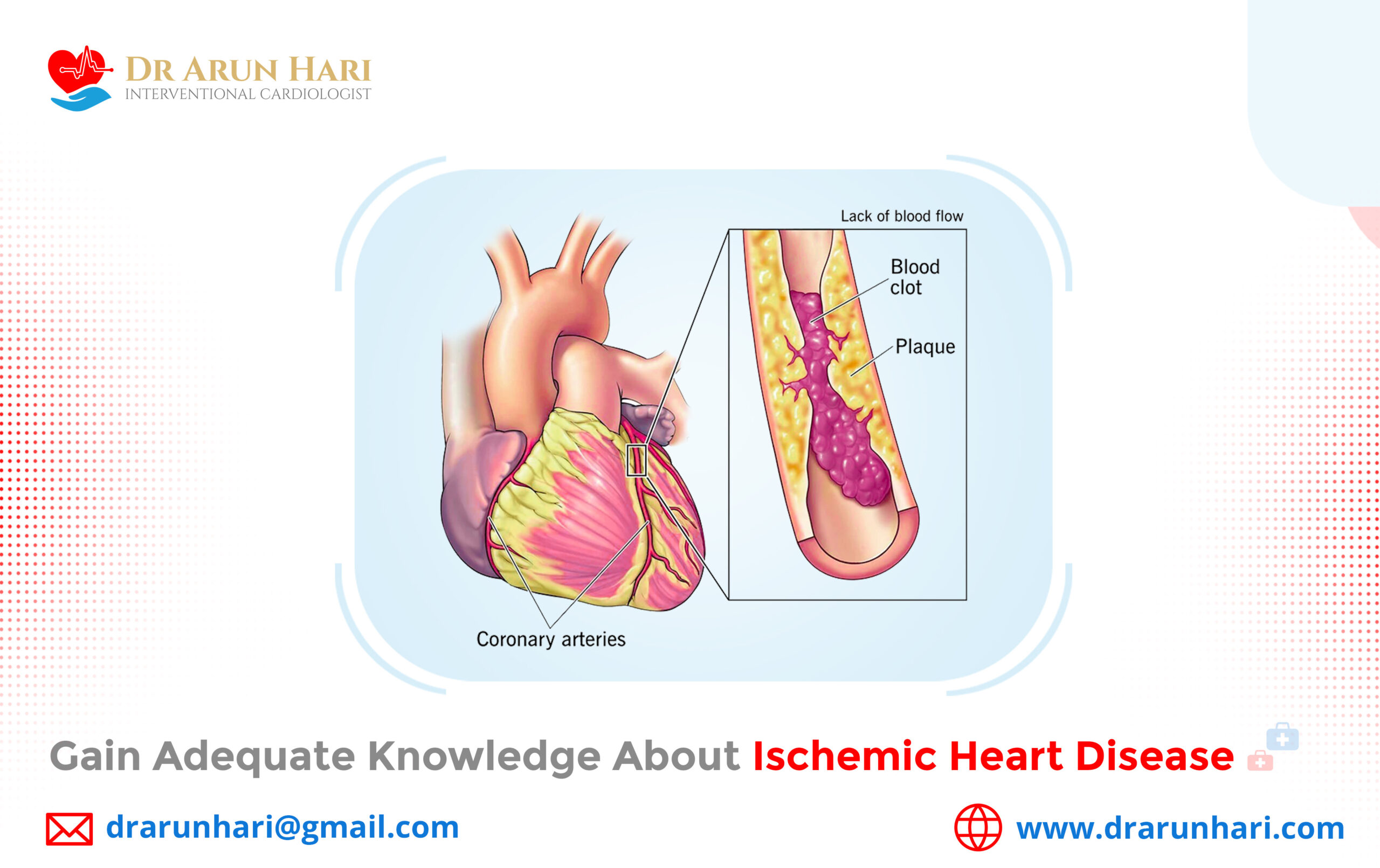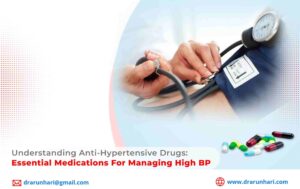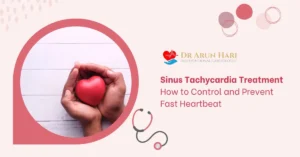What Are the Symptoms of Ischemic Heart Disease?
What Are the Causes of Ischemic Heart Disease?
What Are the Complications That Can Arise in Ischemic Heart Disease?
How to Diagnose Ischemic Heart Disease?
How to Treat Ischemic Heart Disease?
Contact Doctor Arun for Any Symptoms of Ischemic Heart Disease
Ischemic Heart Disease is a medical condition in which the heart muscle receives an inadequate supply of oxygen and nutrients. This occurs when there is a partial or complete blockage in the arteries that supply oxygen to the heart muscles.
What Are the Symptoms of Ischemic Heart Disease?
The symptoms may include the ones given underneath:
- Chest pain (this can range in intensity from a mild discomfort to a severe pressure)
- Discomfort
- Tightness
- Shortness of breath
- Fatigue
- Irregular or rapid heartbeats
- Nausea
- Sweating
What Are the Causes of Ischemic Heart Disease?
The causes of this Heart Disease are varied and can include clogged arteries, coronary artery disease, and heart valve problems. The most common of these causes are narrowed or blocked coronary arteries due to buildup of plaque (atherosclerosis), which is a condition in which fatty deposits build up and restrict the flow of blood to the heart. Other potential causes include inflammation of the coronary arteries, high levels of cholesterol and triglycerides, smoking, diabetes, and hypertension.
Risk Factors
Risk factors include the following:
- Smoking
- Diabetes
- High cholesterol
- High blood pressure
What Are the Complications That Can Arise in Ischemic Heart Disease?
Myocardial ischemia can cause serious long-term damage to the heart muscle and impair the heart’s ability to pump adequately. Complications of this Heart Disease can include the following:
- Angina (chest pain)
- Arrhythmias (irregular heartbeat)
- Heart attack
- Congestive heart failure
- Chronic chest pain
- Stroke
- Sudden death (in most severe cases)
- Heart failure
Prevention Tips
Prevention is largely dependent on lifestyle changes and maintaining a healthy weight. It is important to eat a healthy & balanced diet, regular physical activity, exercise regularly, avoid smoking, and reduce stress. It is also important to have regular checkups with your doctor to help identify any issues before they become more serious.
How to Diagnose Ischemic Heart Disease?
Diagnosing is done through a variety of blood tests, stress tests, and imaging tests. These may include an electrocardiogram (ECG), chest X-ray, echocardiogram, and cardiac catheterization. If a diagnosis is confirmed, your doctor will likely recommend a course of treatment that may include medications and lifestyle changes.
How to Treat Ischemic Heart Disease?
Treatment is largely depends on the type and severity of the condition, but typically includes lifestyle changes (these include quitting smoking, exercising regularly, and eating a healthy diet), medications (such as ACE inhibitors, beta blockers, and statins), and, in more severe cases, surgery or other procedures may also be necessary.
Contact Doctor Arun for Any Symptoms of Ischemic Heart Disease
Myocardial ischemia is a serious medical condition where the heart muscle is deprived of oxygen and nutrient-rich blood, resulting in a decrease in its ability to contract and pump blood. However, with prompt diagnosis and treatment, the prognosis for ischemic heart disease is usually good. So, it is important to maintain a healthy lifestyle, keep regular follow-up appointments with Doctor Arun, and take prescribed medication as directed.





